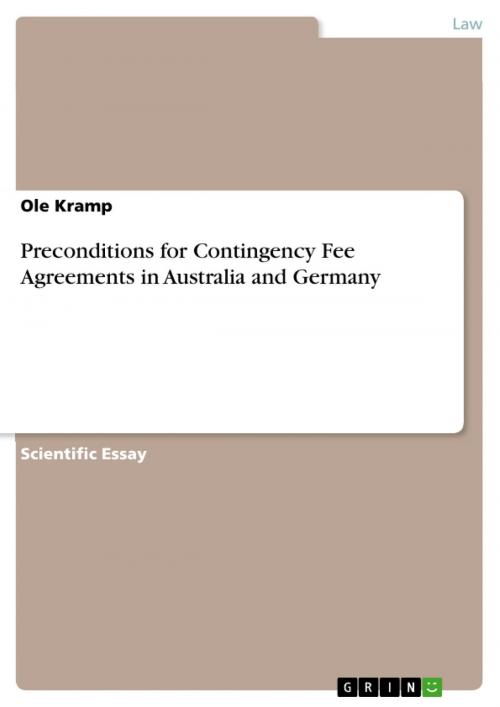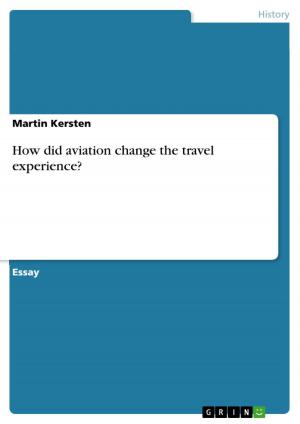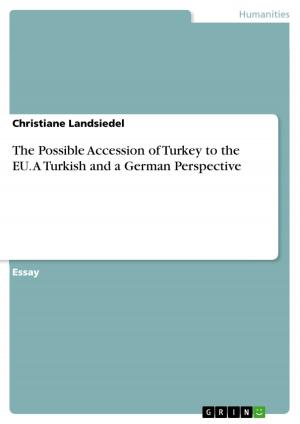Preconditions for Contingency Fee Agreements in Australia and Germany
Nonfiction, Reference & Language, Law, International| Author: | Ole Kramp | ISBN: | 9783640261796 |
| Publisher: | GRIN Publishing | Publication: | February 5, 2009 |
| Imprint: | GRIN Publishing | Language: | English |
| Author: | Ole Kramp |
| ISBN: | 9783640261796 |
| Publisher: | GRIN Publishing |
| Publication: | February 5, 2009 |
| Imprint: | GRIN Publishing |
| Language: | English |
Scientific Essay from the year 2008 in the subject Law - Comparative Legal Systems, Comparative Law, grade: 83 percent, The University of Adelaide, 39 entries in the bibliography, language: English, abstract: This essay will show the advantages of comparative law in the development of appropriate preconditions for contingency fee agreements. After describing the current provisions concerning contingency fees in Australia and Germany, both the Australian and the German approaches will be critically examined concerning the preconditions of conditional cost agreements. The author concludes with the following findings: Sufficient information for the client is one of the most important elements when entering into a conditional cost agreement. The legislators in both countries have set up a good basis by implementing the requirements of written form and client information. The comparative look shows that the exclusion of criminal law and family law matters is unnecessary from a legal perspective and should lead to an amendment of the actual prohibition clauses in the Australian acts. Finally, it must be strongly recommended that Germany should follow the Australian example and implement a 'cooling-off period' to address the client's need for both sufficient information and effective action.
Scientific Essay from the year 2008 in the subject Law - Comparative Legal Systems, Comparative Law, grade: 83 percent, The University of Adelaide, 39 entries in the bibliography, language: English, abstract: This essay will show the advantages of comparative law in the development of appropriate preconditions for contingency fee agreements. After describing the current provisions concerning contingency fees in Australia and Germany, both the Australian and the German approaches will be critically examined concerning the preconditions of conditional cost agreements. The author concludes with the following findings: Sufficient information for the client is one of the most important elements when entering into a conditional cost agreement. The legislators in both countries have set up a good basis by implementing the requirements of written form and client information. The comparative look shows that the exclusion of criminal law and family law matters is unnecessary from a legal perspective and should lead to an amendment of the actual prohibition clauses in the Australian acts. Finally, it must be strongly recommended that Germany should follow the Australian example and implement a 'cooling-off period' to address the client's need for both sufficient information and effective action.
